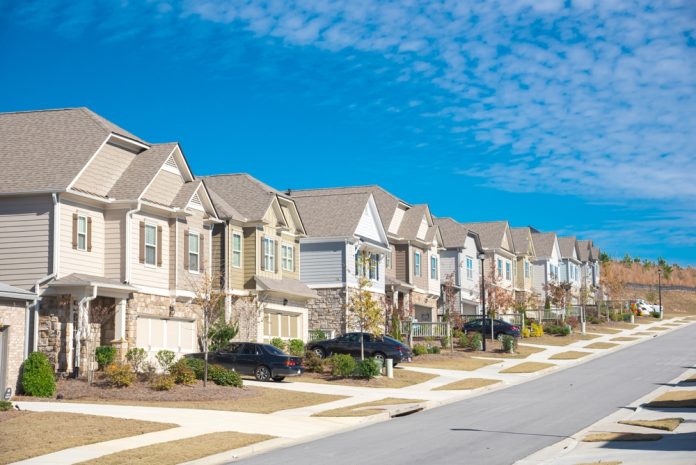Homeowners associations (HOAs) are a common feature in many neighborhoods across the country, particularly in planned communities, condominiums, and townhome developments. While some homeowners appreciate the structure and benefits an HOA provides, others find the rules and fees frustrating.
Whether you’re considering buying a home in an HOA community or already live in one, understanding how these organizations operate can help you make an informed decision when considering buying a new property. This guide covers all aspects of HOAs and provides insights into their purposes, benefits, detriments, and more.
What is an HOA?
An HOA is a governing body that manages a residential community. It is typically established by a property developer and then handed over to the residents once a certain number of homes are sold. HOAs are responsible for maintaining shared spaces, enforcing community rules, and ensuring that the neighborhood remains visually appealing and well-maintained.
HOAs are often governed by a board of directors, which is made up of elected homeowners. This board enforces the community’s rules and regulations, which are outlined in documents such as the Declaration of Covenants, Conditions, and Restrictions (CC&Rs), bylaws, and community guidelines.
While some HOAs are voluntary, many are mandatory, meaning that when you purchase a home in an HOA-regulated community, you automatically become a member and agree to abide by the association’s rules and fees.
What Does an HOA Do?

HOAs play a crucial role in maintaining and improving property values by overseeing various aspects of community life. Their responsibilities may include:
- Maintaining Common Areas: This includes landscaping, lighting, and upkeep of shared spaces such as parks, pools, clubhouses, and walking trails.
- Enforcing Community Rules: HOAs ensure that all residents comply with regulations regarding home appearance, noise levels, parking, and more.
- Managing Finances and Budgets: The association collects fees from homeowners and allocates funds for maintenance, repairs, and future projects.
- Organizing Community Events: Many HOAs foster a sense of community by planning social events, holiday gatherings, and neighborhood meetings.
- Resolving Disputes: If conflicts arise between homeowners regarding property boundaries, noise complaints, or rule violations, the HOA may intervene to find a resolution.
What Do HOA Fees Cover?

HOA fees vary based on the community’s size, location, and amenities, but they generally cover the costs of:
- Property Maintenance: This includes landscaping, snow removal, and maintenance of roads and sidewalks within the community.
- Amenities: If the neighborhood has a pool, gym, clubhouse, or security services, these expenses are covered by HOA fees.
- Utilities for Common Areas: This might include water, electricity, and trash collection for shared spaces.
- Insurance: The HOA may carry insurance for communal buildings, shared property, and liability protection.
- Reserve Funds: A portion of HOA fees often goes into a reserve fund to cover unexpected expenses, such as major repairs or emergency improvements.
How Much Do HOA Fees Cost?
The cost of HOA fees varies widely depending on the location and the level of amenities offered. Here are some general ranges:
- Single-family home communities: $50 – $300 per month
- Townhome communities: $100 – $400 per month
- Condominiums: $200 – $600+ per month (higher due to building maintenance and shared utilities)
Luxury communities with extensive amenities such as golf courses, gated security, and high-end clubhouses may have fees that exceed $1,000 per month. Needless to say, it’s important to factor in these fees when determining the affordability of a home.
Common HOA Rules and Regulations

Each HOA has its own set of rules, but many regulations focus on maintaining a uniform and attractive community. Some of the most common HOA rules include:
- Exterior Home Appearance: HOAs often regulate paint colors, landscaping, and fence styles to maintain a cohesive neighborhood aesthetic.
- Parking Restrictions: Some communities have strict rules about street parking, driveway usage, and commercial vehicle restrictions.
- Pet Policies: HOAs may limit the number of pets, breed types, or require certain animals to be leashed in shared spaces.
- Noise and Behavior Guidelines: Many HOAs have quiet hours and regulations on disruptive activities such as loud parties or excessive barking from pets.
- Short-Term Rentals: Some HOAs prohibit or restrict homeowners from renting out their properties on platforms like Airbnb.
- Trash and Recycling Rules: There may be specific guidelines about when and how residents should place their trash bins out for collection.
Violating HOA rules can lead to warnings, fines, or even legal action, depending on the severity of the infraction.
What Happens If You Don’t Pay HOA Fees?
Failing to pay HOA fees can have serious consequences, as these payments fund essential community services. Consequences of nonpayment can include:
- Late Fees and Interest: Homeowners who miss payments may incur additional charges, increasing their overall debt.
- Suspension of Amenities: Some HOAs revoke access to pools, gyms, and clubhouses for residents with unpaid fees.
- Legal Action: The HOA can take homeowners to court to recover unpaid fees.
- Liens on Property: If a homeowner fails to pay for an extended period, the HOA may place a lien on the property, making it difficult to sell or refinance.
- Foreclosure: In extreme cases, an HOA has the legal right to initiate foreclosure proceedings, forcing the sale of the home to recover unpaid dues.
Should You Buy a Home in an HOA Community?

Living in an HOA community has its advantages and drawbacks. On the positive side, HOAs can help maintain property values, offer amenities, and create a sense of community. However, they also impose rules and fees that may not appeal to every homeowner.
Before purchasing a home in an HOA community, consider:
- Reviewing the HOA Documents: Carefully read the CC&Rs, bylaws, and financial statements to understand the rules and the association’s financial health.
- Assessing Fees and Budgets: Make sure the HOA fees align with your budget and that the reserve fund is adequately funded.
- Understanding Enforcement Policies: Some HOAs are more lenient, while others strictly enforce rules. Determine if the community’s management style aligns with your lifestyle.
Final Thoughts
Homeowners associations play a significant role in shaping residential communities, providing maintenance, enforcing rules, and managing finances. While living in an HOA community comes with added costs and regulations, it also offers benefits such as well-kept common areas and structured neighborhood management.
Before committing to an HOA community, it’s crucial to weigh the pros and cons, review the governing documents, and understand the financial obligations involved. By doing so, you can ensure that your new home and neighborhood align with your expectations and lifestyle.


